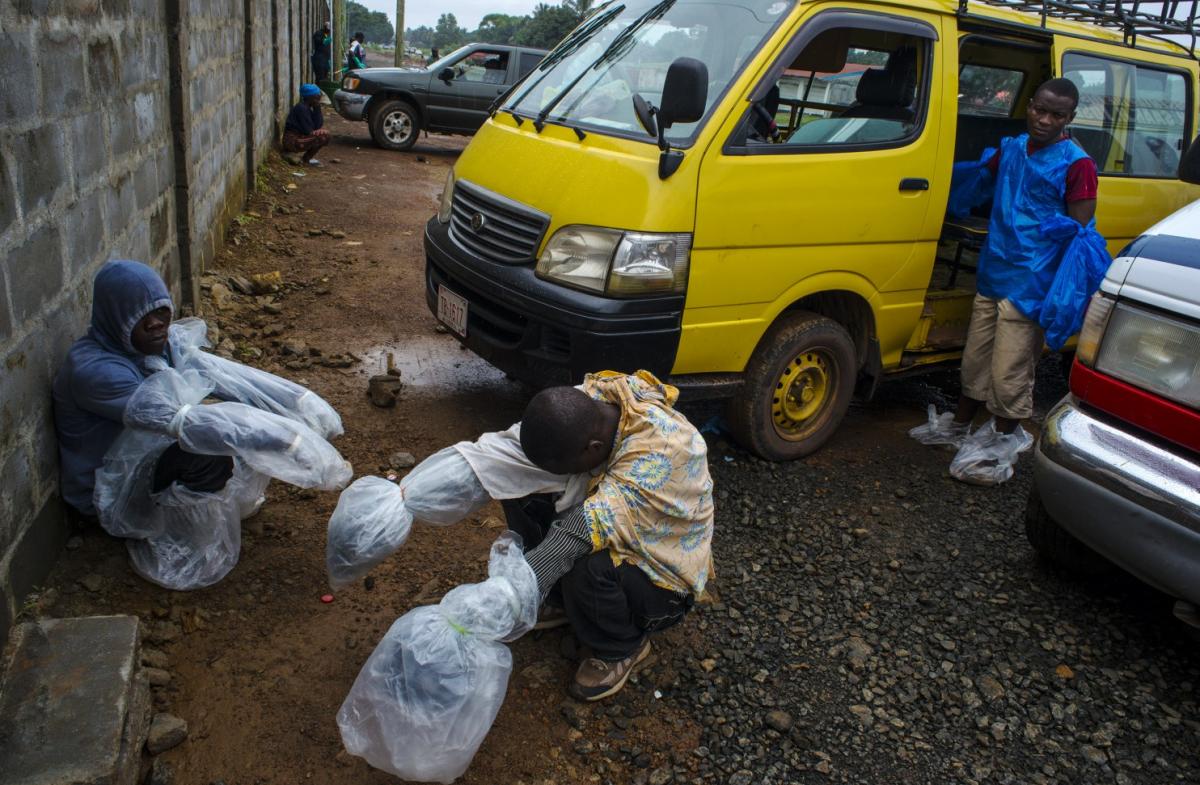
Lawrence Togbah, left, Moses Bryant, center, and Abraham Saye try to protect themselves from Ebola by covering their hands, feet and torso with plastic bags. They did not have proper protective gear like gloves or masks. (Michel du Cille/The Washington Post)
The WASHINGTON POST OCT. 1, 2014
By Lenny Bernstein
MONROVIA, Liberia — I was goofing around with a small group of young children outside their home on a muddy, cratered road in the New Kru Town slum here. I made a scary face and the kids skittered, giggling, behind a low wall at the front of their shanty. Then they peeked out, hoping for more.
Finally the boldest of the lot, a little girl perhaps 5 years old, approached and stuck out her hand. “Shake!” she offered excitedly.
“No touching,” I responded, keeping my hands at my sides, trying to hide my sadness. “No touching.”
You don’t touch anyone in Liberia. Not kids, not adults, not other Westerners, not the colleagues you arrived with. It is the rule of rules, because while everyone able is taking precautions, you just can’t be sure where the invisible, lethal Ebola virus might be. Once the virus is on your fingers, it would be frighteningly easy to rub an eye and infect yourself.
Recent Comments